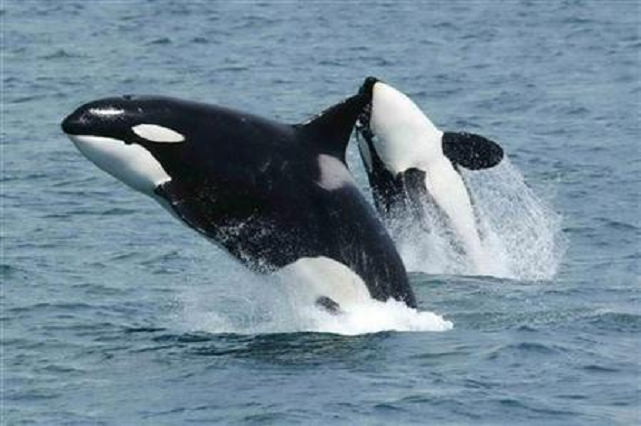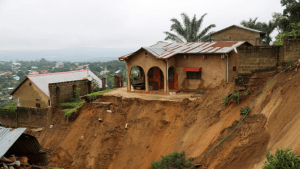Seals and whales in the Arctic are shifting their feeding patterns as climate change alters their habitats, and the way they do so may determine whether they survive, a new study has found.
Researchers harnessed datasets spanning two decades to examine how two species of Arctic wildlife — beluga whales, also known as white whales, and ringed seals — are adapting to their changing habitat.
The research focused on the area around Svalbard — northwest of Norway — which is experiencing rapid impacts from climate change and particularly a “large collapse in sea-ice conditions in 2006 that has continued to the present day,” said lead researcher Charmain Hamilton.
“Both white whales and ringed seals were tagged in Svalbard before this collapse occurred to study their basic ecology. Repeat sampling after the sea-ice collapse occurred thus offered the opportunity for a natural experiment,” added Hamilton, who works with the Norwegian Polar Institute.
Both species traditionally hunt for food in areas with sea ice and particularly at so-called tidal glacier fronts, where glaciers meet the ocean.
But with climate change melting sea ice and prompting glaciers to retreat, researchers in Norway decided to look at whether — and how — animals in the affected areas were adapting.
“The Arctic is the bellwether of climate change,” the researchers wrote in the study published Wednesday in the Royal Society Biology Letters journal.
“With the rapid pace of change rendering genetic adaptation unfeasible,” they reasoned that behavioural and dietary changes “will likely be the first observable responses within ecosystems”.
They compared datasets produced by trackers attached to seals and whales over two sets of time periods.
For the seals, they compared tracker data from 28 individuals between 1996-2003 and then 2010-2016, and for the whales they looked at data from 18 animals between 1995-2001 and 16 animals from 2013-2016.
The data showed that two decades ago, both species spent around half their time foraging at glacier fronts and eating a diet dominated by polar cod.
But ringed seals now spend “significantly higher proportions of time near tidal glacier fronts” while the white whales had the opposite response and had moved elsewhere to look for food.
“Tidal glacier fronts appear to be serving as Arctic ‘refugia’ for RS (ringed seals), explaining why this species has increased the amount of time spent near glaciers,” the study said.
White whales meanwhile now “have larger home ranges and spent less time near glacier fronts and more time in the centre of fjords”.
The researchers, from the Norwegian Polar Institute and the University of Tromso, speculated that whales have shifted their diet, taking advantage of the fact that climate change is allowing new fish species to move further north as waters warm.
Seals in contrast stuck with their old diet, but appeared to spend more time searching for the food at the glacier fronts.
“What was most surprising about the results were the limited changes we found in the ringed seals’ behaviour,” Hamilton told AFP.
“It is not clear why this species is becoming more tightly associated with tidal glacier front refugia and not also foraging on Atlantic fish and invertebrates in other areas of the fjords.”
The study points out that beluga whales tend to be dietary generalists compared to ringed seals, and said the “flexible” response of whales would improve their chances of adapting to warming climes.
By contrast, the apparent doubling down by the ringed seals on their traditional hunting grounds “reflects limited adaptability and resilience”.
And that could be bad news for the seals in a changing world.
“Species and subpopulations that are not able to make such changes are almost certain to decline, perhaps to extinction where refugial areas become too limiting for species survival,” the study said.
Beluga whales are protected, so studies examining their stomach contents for clues on diet are not possible, but research on how the ringed seal’s diet has changed will be completed later this year, Hamilton said.
And further research on both species is planned, including into how sea-ice collapse is affecting reproduction among ringed seals.






